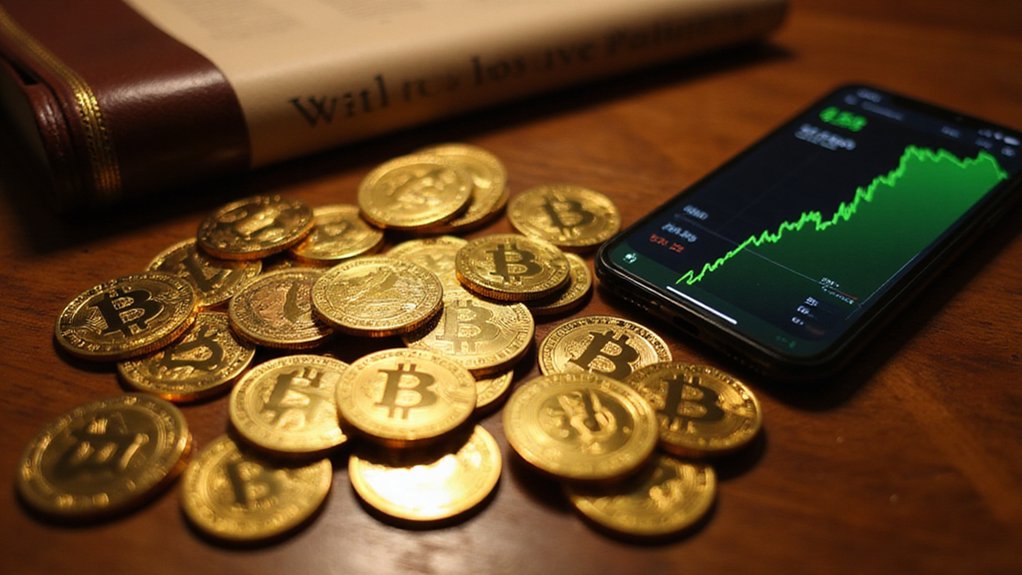While approximately 106 million people worldwide claim Bitcoin ownership in 2025, the stark reality reveals that most holders possess mere fragments of the digital asset—with average holdings hovering around 0.57 BTC and typical wallets containing even less at 0.36 BTC.
This mathematical truth renders owning a complete Bitcoin an increasingly exclusive achievement, particularly when considering that only 4% of the global population participates in this digital gold rush. The distribution patterns tell a fascinating story of scarcity within scarcity: while 200 million wallets exist globally, the vast majority contain fractional holdings that would barely register as significant investments by traditional wealth standards.
Vietnam leads adoption rates at 21.19%, yet even in this crypto-enthusiastic nation, full Bitcoin ownership remains remarkably uncommon. The demographic profile—median age 45, mainly male (61% globally, 67% in the United States)—suggests that even among the most likely adopters, accumulating an entire Bitcoin presents substantial financial barriers.
Even Bitcoin’s most enthusiastic adopters face daunting financial hurdles in accumulating a complete digital coin.
Corporate entities like MicroStrategy, holding 580,250 BTC, demonstrate how institutional players increasingly dominate meaningful accumulation while retail investors scramble for satoshis. The presence of Satoshi Nakamoto’s untouched 968,452 BTC further constrains available supply, creating an artificial ceiling that makes whole-coin ownership more elusive than market mechanics alone would suggest. Lost coins due to forgotten private keys further reduce the actual circulating supply, making the scarcity even more pronounced.
Perhaps most telling is the ambitious sentiment among current holders: 66% plan to increase their positions, while 14% of non-owners intend market entry in 2025. This buying pressure, combined with Bitcoin’s fixed supply cap, creates a mathematical impossibility—not everyone can own a full Bitcoin, regardless of demand or intent.
The emergence of mobile-first platforms and improved user interfaces democratizes access to Bitcoin fragments, paradoxically making partial ownership easier while rendering complete ownership more distant. Traditional financial institutions’ growing involvement adds institutional demand that further fragments retail opportunities. Notably, whales holding over 10,000 BTC have reduced their share from 15.0% to 14.7%, indicating a healthy distribution process as the market matures.
Asia’s dominance with over 326 million crypto users, coupled with America’s 28% adult adoption rate, illustrates global appetite that far exceeds realistic supply distribution. The approval of Bitcoin ETF products by the SEC in January 2024 has channeled additional institutional capital into the market, intensifying competition for already scarce whole Bitcoin positions. The sobering arithmetic suggests that owning one complete Bitcoin in 2025 places holders within an extraordinarily select group—a digital aristocracy defined not by millions, but by mathematical scarcity.









